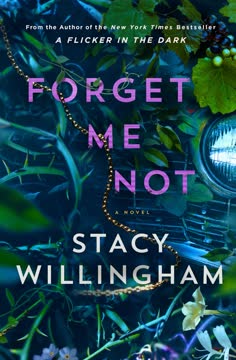Plot Summary
Unwelcome Visitor, Unwelcome Past
Lottie Jones, a seventy-five-year-old woman living alone, is interrupted by a persistent young woman named Plum Dixon. Plum wants to make a docuseries about Lottie's infamous past—her wrongful public accusation as a serial killer decades ago. Lottie, gruff and guarded, is wary of dredging up old wounds. Despite her resistance, Plum's determination and naivety push her way inside, setting off a chain of events that will force Lottie to confront the darkness she's spent a lifetime hiding. The encounter is tense, laced with Lottie's dark humor and Plum's youthful optimism, but beneath it simmers a threat: Lottie will do anything to keep her secrets buried.
Tea, Blood, and Cleanup
Lottie's hospitality is a mask for calculation. When Plum presses too hard, Lottie strikes—literally—killing her with an umbrella. The aftermath is clinical: Lottie's years of experience show as she cleans up, erases digital traces, and disposes of evidence. She's methodical, almost detached, but her age makes the physical labor grueling. The narrative is laced with dark humor and a chilling pragmatism. Lottie's internal monologue reveals both her sharp mind and the aches of her aging body, underscoring the tension between her past capabilities and present limitations.
Regret, Resolve, Routine
The next morning, Lottie is haunted by a fleeting regret—could she have handled Plum differently? But as she listens to Plum's old voicemail, she realizes the young woman would never have stopped. Lottie's resolve hardens. She dismembers Plum's body with a chain saw, her actions mechanical but her thoughts wandering to her son Archie, whose life has been shaped by her own. The juxtaposition of mundane routines—phone calls, breakfast, aches—with the horror of her task creates a surreal, almost comic effect. Lottie's reflections on motherhood and consequence add depth to her otherwise cold efficiency.
Freezer Full of Secrets
Lottie's freezer is now a macabre inventory, each package labeled as innocuous meat. She burns Plum's belongings, keeping only the file about her own life. The act of destruction is both practical and symbolic—a way to control the narrative. As she reads Plum's notes, Lottie is forced to revisit her past: the media frenzy, the police suspicion, the isolation. The house, like Lottie herself, is old, battered, and full of hidden stories. The chapter pulses with a sense of waiting—Lottie knows the calm won't last.
The Lull and the Storm
Lottie's mind races with paranoia: did she miss a detail? Will the police come? She seeks solace in church bingo, surrounded by friends who know nothing of her true self. The banter is sharp, the camaraderie real, but Lottie is always slightly apart. News of Plum's disappearance trickles in, and Lottie must perform innocence for both friends and detectives. The lull is tense, a false peace before the inevitable storm of investigation and suspicion.
Church, Gossip, and Guilt
Church is both sanctuary and stage. Lottie's friends, Sheila and Bonnie, provide warmth and distraction, but also the threat of exposure. The rituals of food, gossip, and games are a lifeline, yet Lottie's internal monologue is always calculating, always wary. The chapter explores the double life of aging women—visible yet invisible, underestimated yet dangerous. Lottie's guilt is layered: for her crimes, for her son's troubles, for the lies she must tell to survive.
The File and the Flashback
Alone, Lottie reads through Plum's file, reliving the police interrogations that nearly destroyed her. Detective Burke, her nemesis, emerges as a figure of obsession and misogyny. The flashbacks are vivid, showing Lottie's refusal to be broken by the system. Her silence was both weapon and shield. The narrative weaves past and present, showing how trauma calcifies into habit, and how the world's judgment can be as dangerous as any crime.
Distractions and Old Habits
Lottie seeks distraction in cooking with Sheila, but the smell of meat triggers memories of burning bodies. She reflects on her "retirement" from murder, how the thrill faded into chore, and how Plum's intrusion forced her back into old habits. The chapter is rich with sensory detail and dark humor, contrasting the domestic with the deadly. Lottie's nostalgia is tinged with regret, but also with a wry acceptance of who she is.
Missing Persons and Detectives
Detectives Tula and Kelsie arrive, probing about Plum. Lottie dons the mask of frailty and confusion, offering plausible lies and red herrings. She invents details—a bruise, a burn—to muddy the waters and shift suspicion. The tension is high, as Lottie must outwit professionals while maintaining her persona as a harmless old woman. The chapter explores the power dynamics of age, gender, and authority, and the razor-thin line between truth and performance.
Bruises, Burns, and Lies
Lottie's invented details about Plum's injuries begin to take on a life of their own, fueling police suspicion of others and deepening the web of lies. Kelsie, the younger detective, grows more persistent, even as Lottie's health falters. The psychological chess match intensifies, with Lottie leveraging her age and apparent vulnerability as both shield and weapon. The narrative is taut, the dialogue sharp, as each side tests the other's limits.
Family Ties, Family Faults
Lottie's son Archie announces his impending marriage to a much younger woman, Morgan, who is pregnant. The news stirs up old wounds—Lottie's guilt over her son's troubled relationships, her own failures as a mother, and the legacy of trauma. Conversations with her ex-daughter-in-law Stephanie are fraught with resentment and unspoken blame. The chapter delves into the complexities of family, the ways in which the past shapes the present, and the difficulty of letting go.
The First Kill
A flashback reveals Lottie's first kill: Gary, a lover who dismissed and insulted her. The act is impulsive but liberating, awakening a sense of power and control. The narrative explores the psychology of violence, the role of anger and humiliation, and the slippery slope from victim to perpetrator. Lottie's reflections are unflinching, honest, and darkly funny, offering insight into the making of a serial killer.
The Price of Silence
Detective Kelsie uncovers Lottie's past and attempts to blackmail her, demanding $50,000 to keep her secret. Lottie is pushed to the brink, forced to consider murder once again. The power dynamic shifts—Kelsie is desperate, Lottie is cornered, and the stakes are life and death. The chapter is a masterclass in tension, as Lottie stalks Kelsie, weighs her options, and ultimately chooses violence over submission.
Blackmail and the Hammer
Lottie kills Kelsie with a hammer, staging the scene as an accident. The act is brutal but necessary—Kelsie's desperation made her too dangerous to leave alive. Lottie's cleanup is meticulous, her paranoia heightened. The narrative explores the toll of violence on the aging body and mind, the erosion of confidence, and the ever-present fear of discovery. Lottie's reflections are laced with bitterness and exhaustion.
Stalking and Survival
Lottie's attempts to cover her tracks are complicated by modern technology—phones, cameras, tracking apps. She discovers her own son has been monitoring her movements out of concern, a betrayal that cuts deep. The chapter explores the loss of privacy in the digital age, the generational divide, and the ways in which surveillance can be both protective and invasive. Lottie's sense of control is slipping, and the world feels increasingly hostile.
The Trap and the Twist
Plum's mother, Norma, arrives, seeking answers. She drugs and ties up Lottie, demanding the truth about her daughter. The power dynamic is reversed—Lottie is the captive, Norma the interrogator. But Lottie's cunning prevails; she escapes, kills Norma, and disposes of the body. The narrative is claustrophobic, intense, and darkly comic, exploring the limits of endurance and the unpredictability of human behavior.
Norma's Arrival
Norma's grief is raw, her anger barely contained. She blames Lottie, the police, and herself for Plum's disappearance. The confrontation is emotionally charged, with Lottie using her skills of manipulation to deflect suspicion and sow doubt. The chapter explores the corrosive effects of loss, the hunger for answers, and the ease with which truth can be twisted.
Tied Up and Turned Tables
Lottie's escape from Norma is a testament to her resilience and cunning. The violence is desperate, the aftermath messy. Lottie's reflections are tinged with self-loathing and fatigue—each kill takes a greater toll, and the line between necessity and compulsion blurs. The narrative is relentless, refusing to flinch from the realities of aging, violence, and regret.
The Final Confrontation
Detective Burke, now old and frail, orchestrates a final confrontation. He sends his own son to finish what he started, but Lottie outsmarts them both. The showdown is both physical and psychological, a battle of wills between two survivors. Burke's obsession with being remembered mirrors Lottie's own fears of oblivion. The chapter is a meditation on legacy, justice, and the stories we tell ourselves.
Endings and New Beginnings
With her enemies gone and her secrets safe, Lottie prepares to sell her house and move into a retirement community. She reconnects with her family, makes peace with her past, and contemplates a new project: helping others tell their stories of wrongful accusation. The narrative ends on a note of cautious optimism—Lottie may never be free of her past, but she can choose what to do with her future. The emotional arc is complete: from isolation and fear to connection and possibility.
Characters
Lottie Jones (Lorena Mae Lansdale)
Lottie is a seventy-five-year-old woman with a notorious past—once publicly accused (but never convicted) of being a serial killer. She is fiercely intelligent, darkly funny, and deeply pragmatic. Her relationships are fraught: she loves her son Archie but is haunted by the ways her life has shaped his. Lottie's psychological complexity is the heart of the novel—she is both predator and prey, victim and perpetrator, capable of tenderness and brutality. Her development is a study in survival: as her body fails, her mind remains sharp, but the world's changes (technology, social norms) threaten her control. Lottie's greatest fear is not death, but irrelevance and exposure. Her journey is one of reckoning—with her past, her family, and the possibility of redemption.
Plum Dixon
Plum is a young, idealistic producer determined to make a name for herself by telling Lottie's story. Her persistence and optimism are both her strengths and her undoing. Plum's relationship with Lottie is adversarial but also oddly intimate—she sees Lottie as both subject and symbol. Psychologically, Plum is driven by a need to prove herself, to right wrongs, and to connect with her estranged mother. Her fate is a brutal reminder of the dangers of curiosity and the limits of good intentions.
Archie Jones
Archie is Lottie's only child, a lawyer whose life has been shaped by his mother's infamy. He is well-meaning but emotionally stunted, making poor choices in relationships and struggling to connect with his own children. Archie's loyalty to Lottie is both touching and tragic—he wants to protect her, but also to escape her shadow. His use of technology to track Lottie is both an act of care and a violation, highlighting the complexities of modern family dynamics. Archie's arc is one of reluctant acceptance—of his mother's flaws, his own limitations, and the messy reality of love.
Detective Kenneth Burke
Burke is the detective who once tried to convict Lottie and has spent decades obsessed with her. He is a study in toxic masculinity—arrogant, manipulative, and unable to let go of a case that defines his sense of self. Burke's relationship with Lottie is adversarial, but also symbiotic; they are locked in a dance of suspicion and evasion. Psychologically, Burke is driven by a need for legacy, to be remembered as the man who caught the "she-devil." His inability to move on is both his downfall and his tragedy.
Detective Kelsie Harlow
Kelsie is a young detective who initially seems earnest and capable, but is revealed to be desperate and willing to blackmail Lottie. Her arc is a cautionary tale about the corrosive effects of ambition and the dangers of underestimating others. Kelsie's relationship with Lottie is complex—she admires, fears, and ultimately tries to exploit her. Psychologically, Kelsie is driven by financial need and a desire for recognition, but her lack of experience and emotional control make her vulnerable.
Norma Dixon
Norma is Plum's estranged mother, whose guilt and grief drive her to seek answers—and revenge. She is both victim and threat, her instability making her unpredictable. Norma's relationship with Lottie is fraught with suspicion, accusation, and a twisted kind of kinship. Psychologically, Norma is desperate for redemption, but her inability to face her own failures leads her to lash out at others. Her arc is a descent into obsession and violence.
Cole Fletcher
Cole is Plum's boyfriend, earnest and well-intentioned, but out of his depth. He becomes an unwitting ally to Lottie, his search for Plum paralleling the police investigation. Cole's psychological makeup is defined by loyalty and a need to be the hero, but he is ultimately powerless in the face of Lottie's cunning. His presence serves as a reminder of innocence lost and the collateral damage of obsession.
Sheila and Bonnie
Sheila and Bonnie are Lottie's church friends, providing comic relief, warmth, and a sense of community. They are both foils and mirrors to Lottie—sharing her fears of aging, irrelevance, and invisibility. Their relationships are marked by gossip, competition, and genuine care. Psychologically, they represent the ordinary lives Lottie both envies and scorns. Their presence grounds the narrative, offering a glimpse of what Lottie's life could have been.
Morgan
Morgan is young, ambitious, and determined to carve out a place in Archie's life. Her relationship with Lottie is initially awkward, but grows into mutual respect. Morgan's presence forces Lottie to confront her own prejudices and fears about the future. Psychologically, Morgan is both a threat and an opportunity—a chance for Lottie to connect, to forgive, and to let go.
Junior Burke
Junior is sent by his father to finish what Burke started, but is ultimately outmatched by Lottie. He is a tragic figure—caught between loyalty and incompetence, unable to escape his father's shadow. Psychologically, Junior is driven by a need for approval, but lacks the cunning and resolve of his adversaries. His fate is a cautionary tale about the dangers of inherited obsession.
Plot Devices
Unreliable Narration and Shifting Perspective
The novel is told through Lottie's sardonic, self-aware narration, which both reveals and conceals. Her unreliability is a key device—readers are never sure how much to trust her version of events, her justifications, or her memories. This creates a constant tension, as the truth is always just out of reach. The use of flashbacks, internal monologue, and dark humor deepens the psychological complexity and keeps the reader off-balance.
Misdirection, Red Herrings, and False Confessions
The plot is driven by misdirection—Lottie's lies to the police, her manipulation of evidence, and her ability to shift suspicion onto others. The invented details about Plum's injuries, the staged accidents, and the planted clues all serve to muddy the waters. The narrative structure mirrors a classic whodunit, but with the twist that the protagonist is both detective and killer.
The Aging Body as Plot and Theme
Lottie's age is not just a character trait—it is a plot device. Her physical limitations add tension to every act of violence, every cleanup, every attempt to outwit younger, stronger adversaries. The aches, pains, and memory lapses are both obstacles and tools, allowing her to play the role of harmless old woman while hiding her true capabilities.
Technology and Surveillance
Phones, tracking apps, cameras, and digital footprints are central to the plot. Lottie's struggle to keep up with technology mirrors her struggle to stay ahead of suspicion. The generational divide—Archie's tracking, Kelsie's surveillance, Burke's use of facial recognition—creates both danger and opportunity. The novel explores the loss of privacy, the ubiquity of surveillance, and the impossibility of erasing the past.
Intergenerational Trauma and Legacy
The relationships between Lottie and Archie, Burke and Junior, Norma and Plum, are all shaped by the past. The novel uses these connections to explore how trauma, obsession, and violence are passed down, and how the desire to be remembered can both save and destroy. The motif of memory—what is kept, what is lost, what is invented—runs throughout, culminating in Lottie's final choice to shape her own legacy.
Dark Humor and Irony
The novel's tone is laced with wit, sarcasm, and irony. Lottie's observations about aging, church, and murder are both funny and chilling. The humor serves as both relief and commentary, highlighting the absurdity of societal expectations, the indignities of old age, and the banality of evil.
Analysis
Samantha Downing's Too Old for This is a razor-sharp, darkly comic meditation on aging, identity, and the stories we tell to survive. At its core, the novel is about the tension between visibility and invisibility—how society dismisses older women, and how that dismissal can be weaponized. Lottie Jones is both a product and a subverter of her circumstances: her violence is born of anger, humiliation, and a lifetime of being underestimated. The book interrogates the nature of justice, the fallibility of memory, and the corrosive effects of obsession—both personal and institutional. Through its intricate plotting and unreliable narration, the novel blurs the line between victim and perpetrator, innocence and guilt. The use of technology as both threat and tool reflects contemporary anxieties about privacy and control, while the intergenerational relationships highlight the enduring impact of trauma. Ultimately, Too Old for This is a story about survival—not just of the body, but of the self. It asks whether it is possible to escape the past, to choose one's own legacy, and to find meaning in the face of decline. The answer, the novel suggests, is complicated, messy, and—like Lottie herself—impossible to pin down.
Last updated:
Review Summary
Too Old for This follows Lottie Jones, a 75-year-old retired serial killer living quietly until an investigative journalist threatens to expose her past. Readers praised the unique premise, dark humor, and compelling protagonist. Many found Lottie surprisingly likable despite her crimes. The book was described as fast-paced, entertaining, and full of twists. Reviewers appreciated the exploration of aging and technology challenges for an older killer. Overall, it was highly recommended for fans of unconventional thrillers with witty, morally ambiguous characters.
Similar Books
Download PDF
Download EPUB
.epub digital book format is ideal for reading ebooks on phones, tablets, and e-readers.

















